Animal Adaptations and Traits Teaching Resources
Get ready to teach about animal adaptations and animal traits this school year with printable worksheets, digital activities and more teacher-created resources for primary teachers!
This collection of Australian Science curriculum-aligned resources includes printables and Google Slides templates that have been thoroughly reviewed by our expert teaching team to ensure they're ready for your lesson plans and your students.
Save time on lesson planning with ready-made teacher slides, vocabulary guides and activities that can easily be differentiated to meet your students' individual needs.
New to tackling this topic in the classroom? The expert science teachers on the Teach Starter team have put together the answers to some of teachers' most common questions about animal adaptations and animal traits!
What Are Animal Adaptations? A Kid-Friendly Definition
Let's start with an easy way to explain what adaptation in animals is to your class! Here's a kid-friendly definition from our teacher team:
Adaptation is when animals change their bodies or behaviours to survive better in their environment. Humans may put on a jacket when it's cold outside — that's an example of how we adapt. Animals also have their own special ways of dealing with different environments.
How Do Animals Adapt to Their Environments?
Just as there are countless kinds of animals living around the world, there are many ways that different animals will adapt to their environment. There are two major types of adaptations:
Behavioural Adaptations
One way that an animal can adapt is through a process called behavioural adaptation. This kind of change doesn't require a change in the animal's DNA or its physical features.
Instead, this involves changes in an animal's actions or habits that help them survive in their environment, such as a bear hibernating during the winter.
Structural Adaptations
Another way that animals adapt is through changes to physical features or body parts. These are called structural adaptations, typically occurring over time via evolution, the process of gradual change in species over many generations.
A polar bear's white fur is a good example of a structural adaptation for this tundra animal. The color of the fur helps polar bears blend in with the snowy environment of the Arctic, providing camouflage and making it easier for them to hunt and sneak up on prey.
Animal Adaptation Examples
Looking for more animal adaptation examples that kids love to share with your students? Give these a try!
Desert Animal Adaptations
- Camels have humps that store fat, which they can use as food and water when there's not much available.
- Desert snakes have scales that help them move smoothly on the sand.
- Beetles that live in the desert have a hard outer covering that prevents them from losing water.
Tundra Animal Adaptations
- In addition to the color of their fur, polar bears have thick fur and a layer of blubber (fat) that keep them warm in the freezing cold.
- Arctic foxes can change the color of their fur from brown in the summer to white in the winter to blend in with the snow.
- Caribou have wide hooves that help them walk on the soft tundra and dig through the snow for food.
- Plus Plan
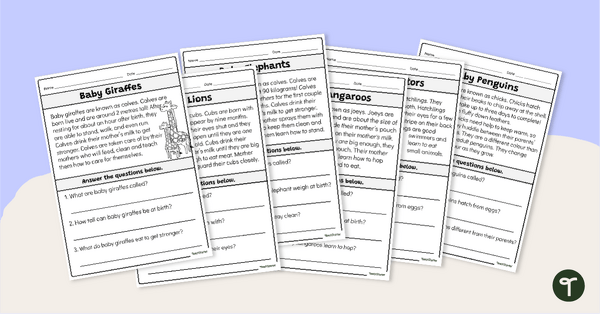
Baby Animals Reading Worksheets - Year 1-2
Learn about animals and their babies with a pack of printable Animal Babies Reading Worksheets for Years 1 & 2.
- Plus Plan
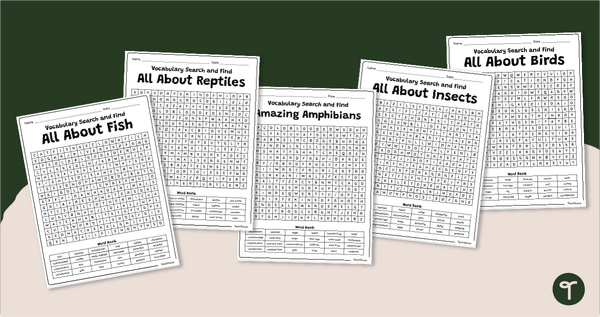
Animal Classes Word Search Pack - Upper Years
Review vocabulary related to animal classes and characteristics of animals with a pack of printable animal classification word searches.
- Plus Plan
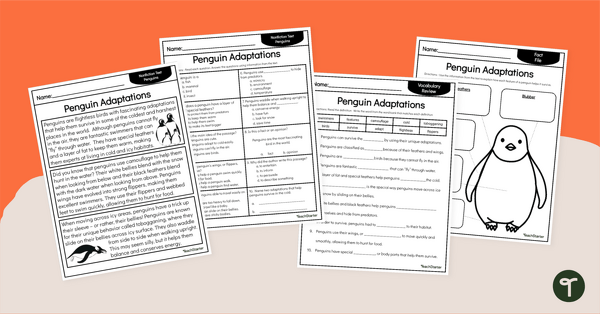
Penguin Adaptations - Year 3 Reading Comprehension
Explore the fascinating world of penguins and their adaptations with our set of printable Year 3 Reading Comprehension worksheets.
- Free Plan
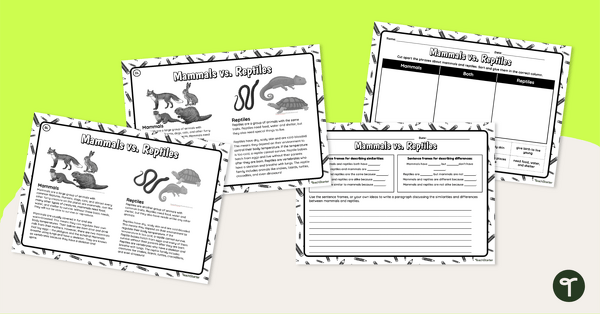
Paired Passage Worksheets-Mammals vs. Reptiles
Compare mammals vs. reptiles and add to your reading instruction with leveled nonfiction, compare and contrast passages, and worksheets.
- Free Plan
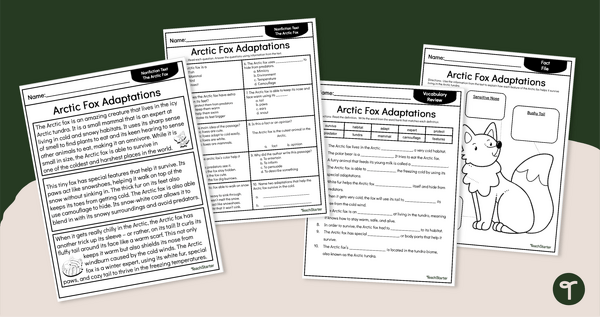
Arctic Fox Adaptations - Free Comprehension Worksheets
Read and learn about Arctic fox adaptations with a set of free Reading Comprehension Worksheets for Years 3-5.
- Free Plan
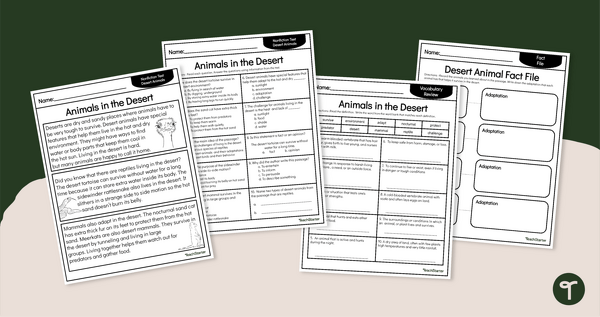
Free Desert Animal Adaptations Worksheets - Comprehension
Discover desert animal adaptations with a printable reading comprehension worksheet pack for Grades 4-5.
- Plus Plan
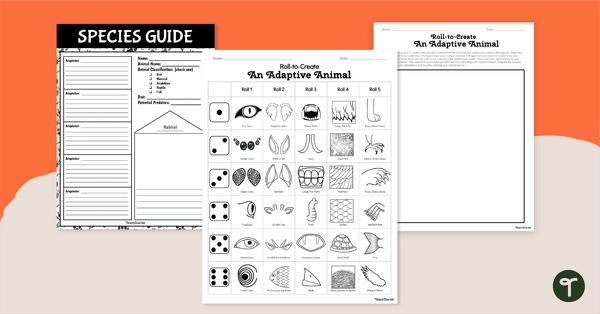
Roll to Create an Animal - Adaptations Game
Roll to create an animal with cool adaptations using a fun dice game and report template.
- Plus Plan
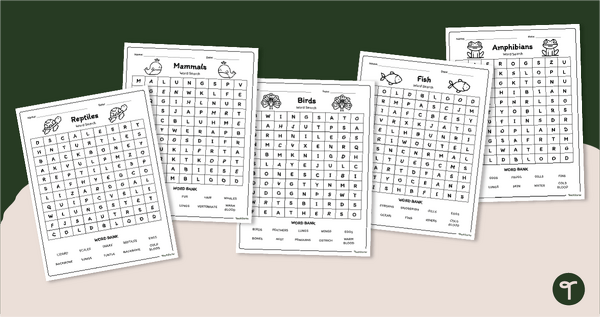
Animal Classification Word Search Pack - Early Years
Introduce your lower-year students to the six animal types/classes with a pack of printable animal word search worksheets.
- Plus Plan
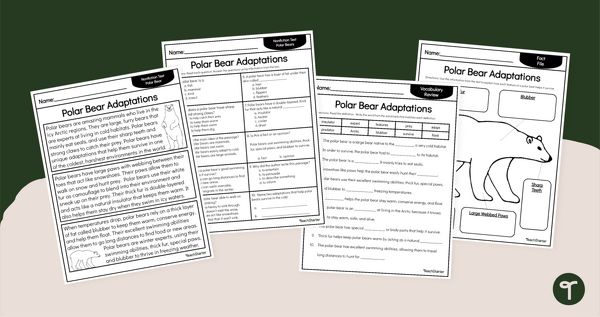
Polar Bear Adaptations Reading Comprehension Pack
Discover polar bear structural adaptations with a set of printable reading comprehension worksheets for Year 3.
- Plus Plan
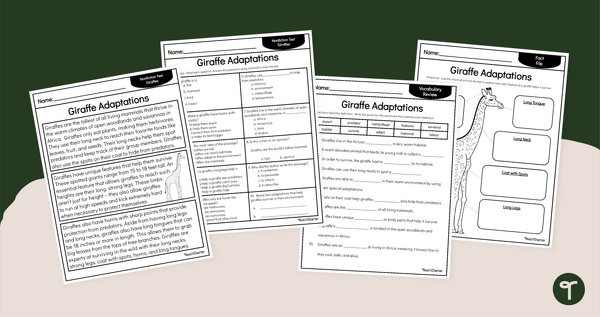
Giraffe Adaptations - Reading Comprehension Year 3
Read and learn about adaptations of the giraffe with a set of printable Year 3 comprehension activities.
- Free Plan
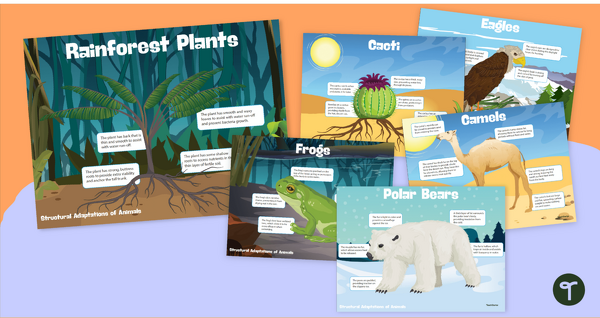
Plant and Animal Adaptations - Structural Adaptation Posters
Highlight the physical adaptations of different animals with a set of printable anchor charts.
- Plus Plan
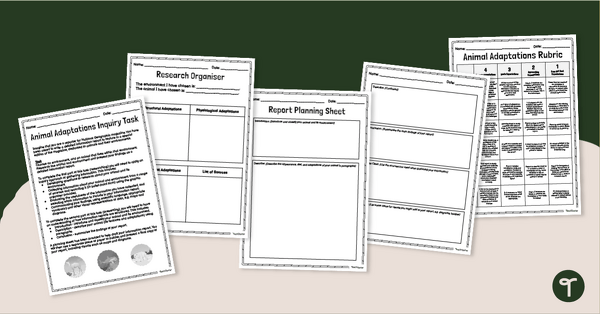
Animals That Adapt - Research Project & Report
Strengthen your students' understanding of conducting research with an Animal Adaptations research project.
- Free Plan
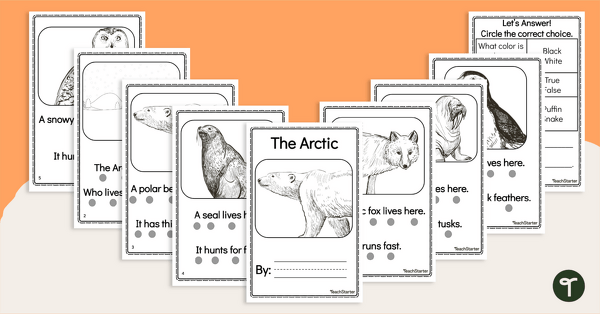
Arctic Animals Booklet - Science Reader
Learn about polar animals and build comprehension skills with a Year 2 Arctic animal book.
- Free Plan
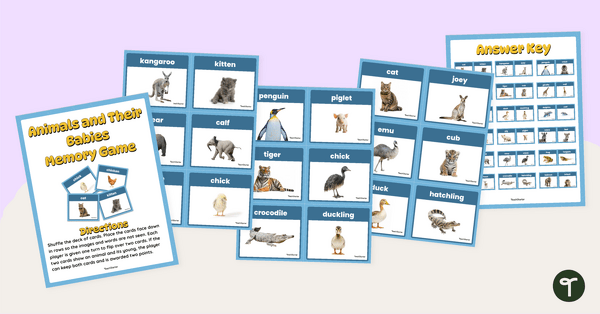
Baby Animal Matching Game - Memory
Play a Baby Animal Matching Game for kids to learn about animals and their young.
- Free Plan
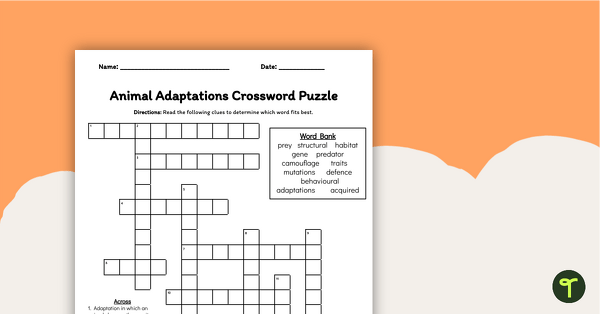
Animal Adaptations Crossword Puzzle
Use an Animal Adaptations Crossword puzzle to review physiological, structural, and behavioural adaptation concepts.
- Plus Plan
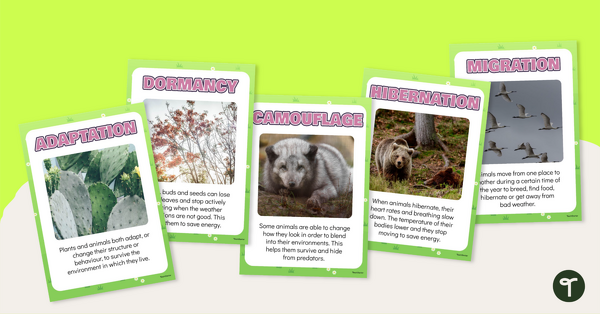
How Seasons Affect Plants and Animals Poster Set
Display these informative posters in your Grade One classroom to remind students of the five ways animals and plants adapt to seasonal changes in their environment.
- Plus Plan
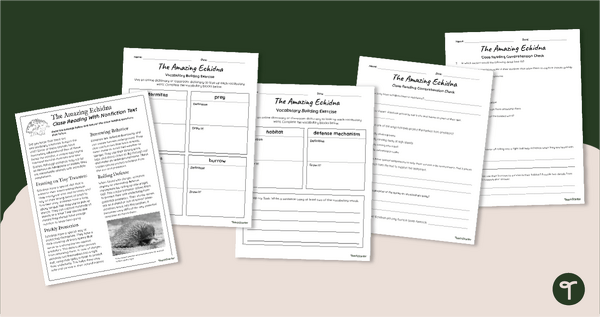
Echidna Adaptations – Reading Worksheet Pack
Discover the adaptations of the echidna with a printable reading passage and comprehension worksheet pack.
- Plus Plan
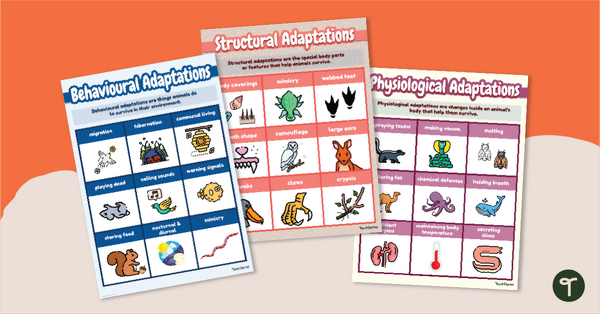
Animal Adaptation Examples – Anchor Chart Set
Help your students identify physiological, behavioural, and structural adaptations with printable Examples of Adaptations Anchor Charts.
- Plus Plan
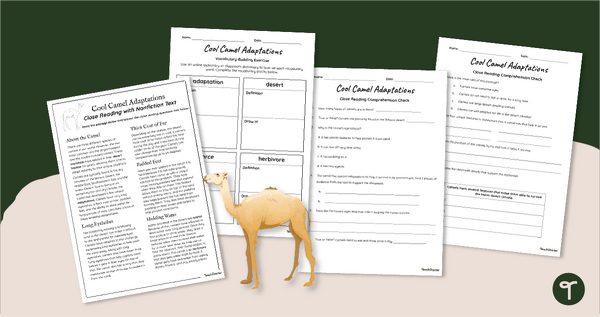
Camel Adaptations - Year Five Reading Comprehension
Learn about the physical and behavioural adaptations of a camel with a set of printable reading comprehension worksheets for Year 5.
- Plus Plan
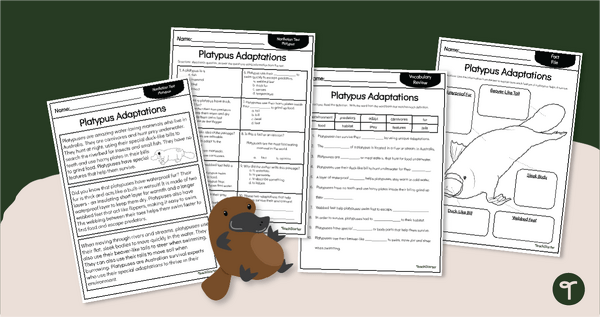
Platypus Adaptations - Reading Passage & Questions
Learn about the physical and behavioural adaptations of the platypus with a set of printable reading comprehension worksheets for Years 3-5.
- Plus Plan
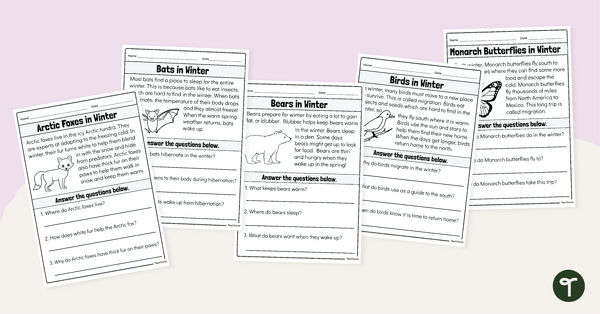
Animals in Winter - Year 1 Reading Worksheets
Blend Year 1 Science and Reading with a printable pack of Animals in Winter reading comprehension worksheets.
- Plus Plan
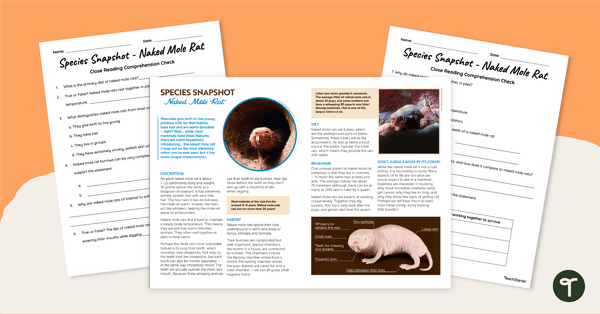
Naked Mole Rat - Reading Comprehension Worksheets
Read and learn facts about the naked mole rat with a printable reading comprehension worksheet pack for year 4 and 5.
- Plus Plan
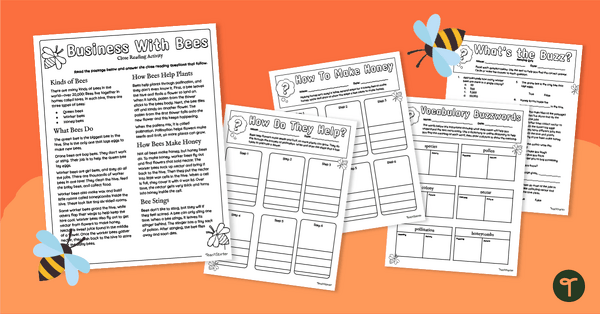
Printable Worksheets About Bees - Year 2-3 Comprehension
Use our worksheets about bees to discover what there is to know about bees, how they help plants, and how they make honey.
- Plus Plan
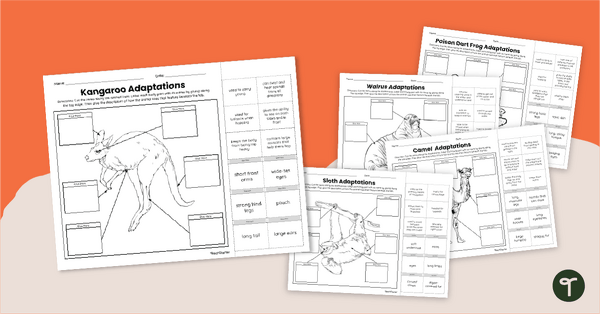
Animal Adaptations for Kids - Worksheet Pack
Identify and label different animal features and discover how these adaptations help animals survive with a pack of printable lift-the-flap matching worksheets.
- Plus Plan
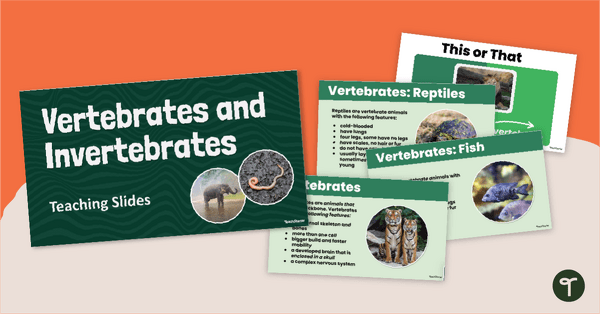
Vertebrates and Invertebrates Teaching Slides
Teach your students about the characteristics of vertebrates and invertebrates with an interactive teaching slide presentation.
- Plus Plan
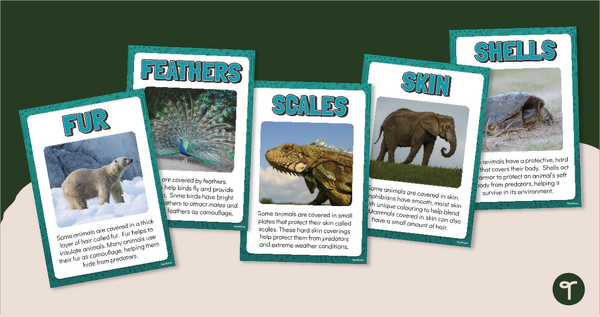
Animal Body Coverings Poster Set
Discover the different animal body coverings (feathers, fur, scales, skin and shells) with a set of printable posters.
- Plus Plan
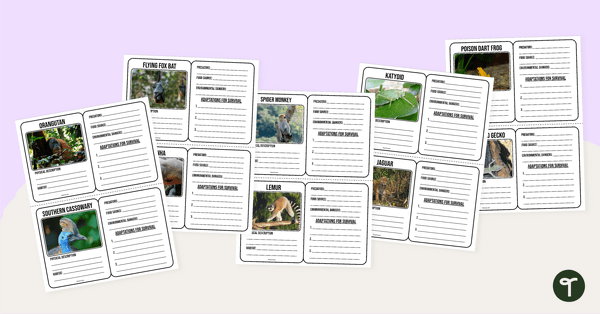
Rainforest Animal Printables — Adaptation Trading Cards
Discover rainforest animal adaptations and display your learning with miniature rainforest animal report templates.
- Plus Plan
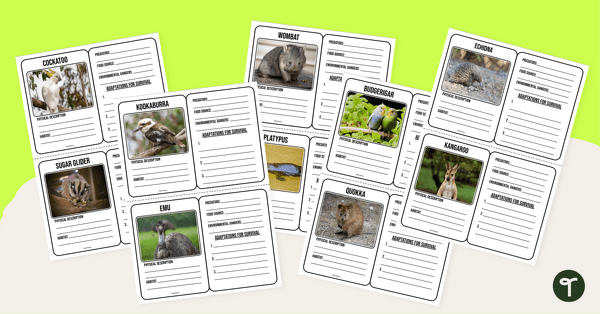
Australian Animal Adaptations Trading Cards – Forest Biome
Discover the adaptations of animals in the forests and woodlands of Australia with printable animal trading card templates.
- Plus Plan
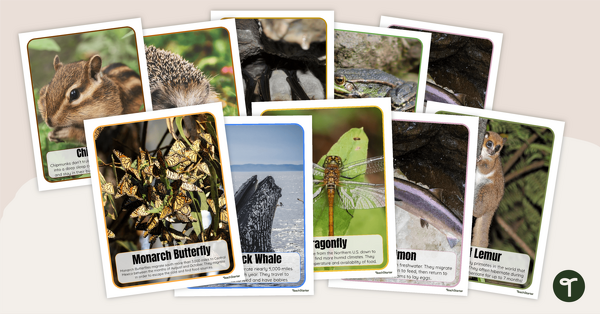
Animals that Hibernate & Migrate Picture Posters
Explore animal hibernation and migration and learn about the animals that use these behavioural adaptations with a printable animal poster pack.
- Plus Plan
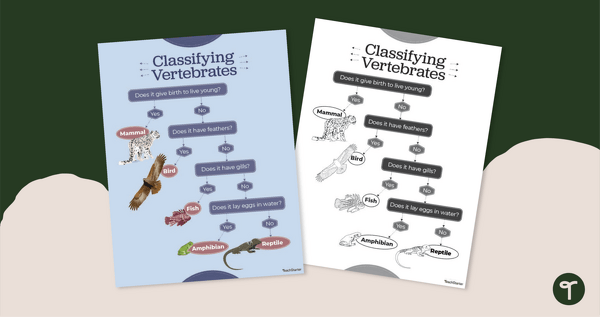
Classifying Vertebrates Flow Chart Poster
Classify vertebrates using an animal classification flowchart poster.
- Free Plan
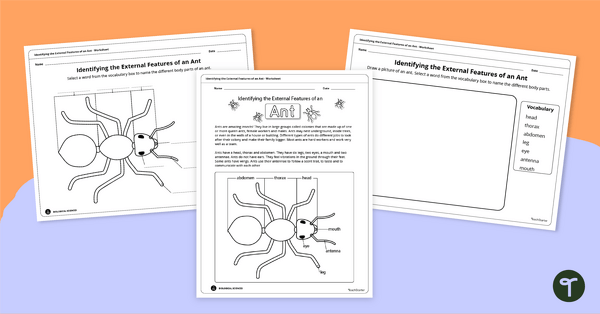
Label the Ant Diagram Worksheet Pack
Learn about the anatomy of an ant with a printable reading passage and ant labeling worksheets.
- Free Plan
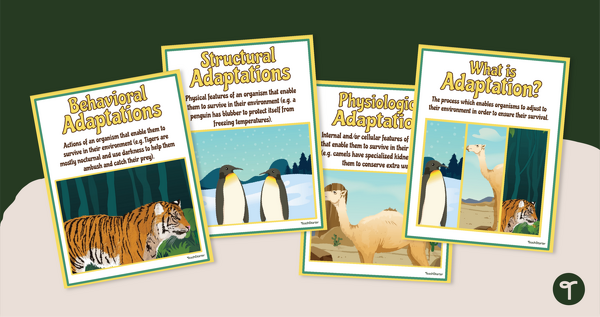
Behavioural, Structural and Physiological Adaptations (Classroom Poster Pack)
Print 4 free classroom posters explaining the different types of adaptations in the animal kingdom!
- Animal Adaptations and Traits Worksheets
- Animal Adaptations and Traits Posters
- Animal Adaptations and Traits Teaching Presentations
- Animal Adaptations and Traits for Foundation Year
- Animal Adaptations and Traits for Year 1
- Animal Adaptations and Traits for Year 2
- Animal Adaptations and Traits for Year 3
- Animal Adaptations and Traits for Year 4
- Animal Adaptations and Traits for Year 5
- Animal Adaptations and Traits for Year 6